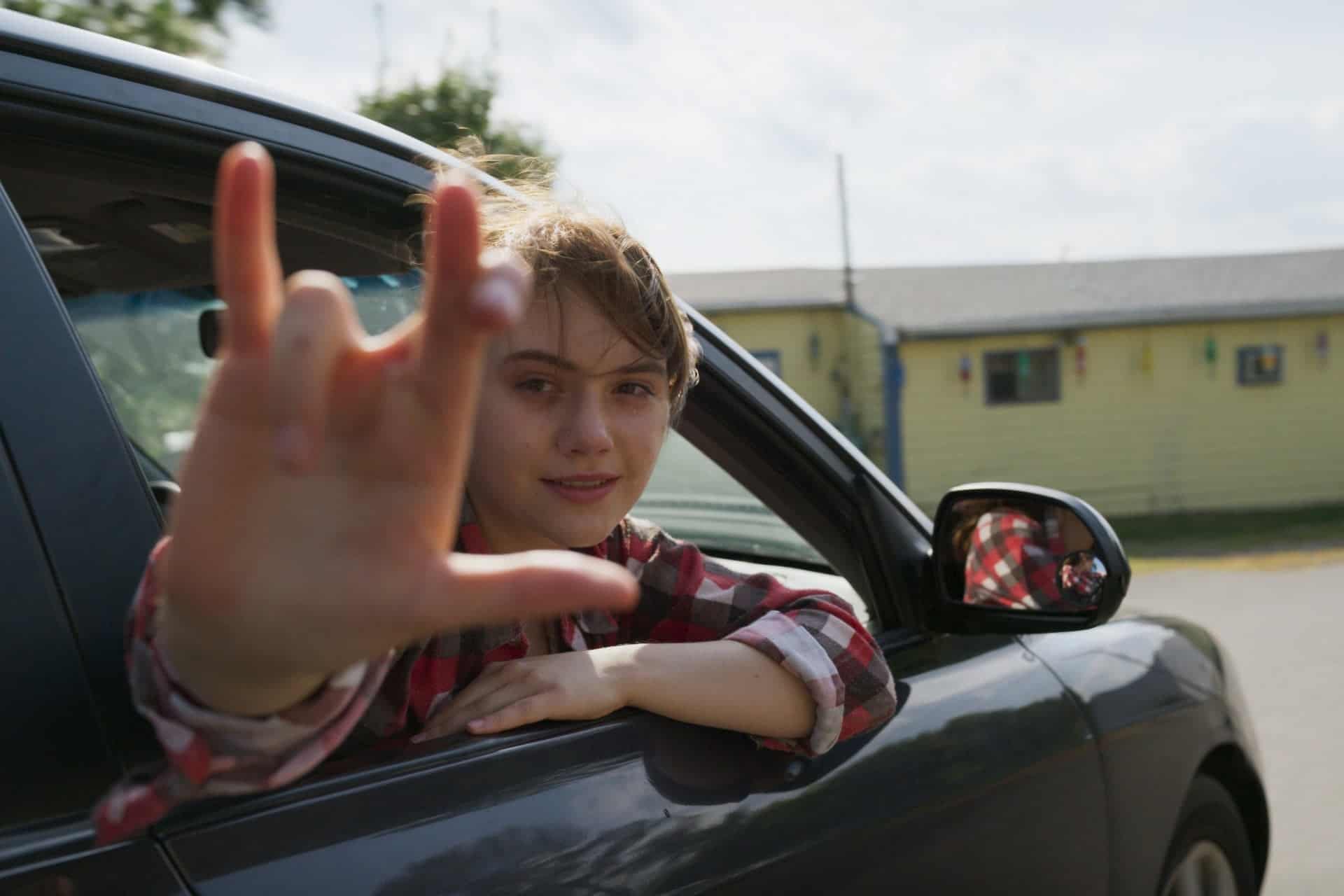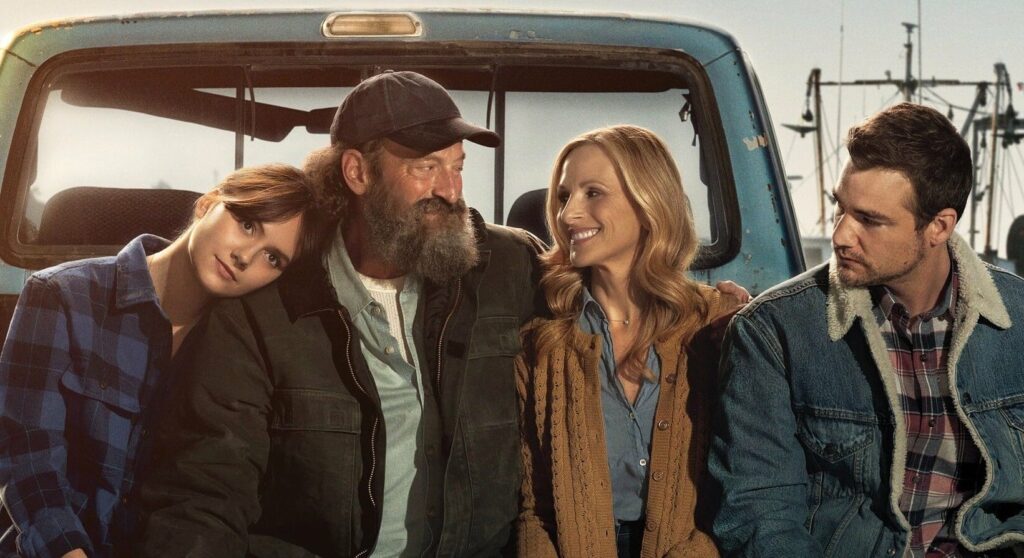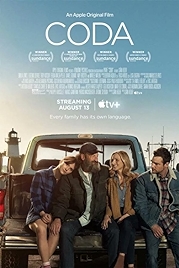CODA is the acronym for Children of Deaf Adults and the name of a movie whose subject matter might make many people pause before watching. Too worthy maybe. Sign language all over the place. Triumph over adversity mawkishness. Though it won an Oscar for Best Picture, this can be not so much a gong, more a warning bell – see Crash, Driving Miss Daisy and Around the World in 80 Days.
So it’s a surprise to find what a sweet, straightforward film it is. An underdog movie that piles it on with an earth mover, it stars Emilia Jones as Ruby Rossi, the teenage fully-hearing daughter of two deaf parents, sister to a deaf brother, who’s having a hard time of it at school. Who joins the choir to get closer to unattainable hot boy Miles (Ferdia Walsh-Peelo) in spite of the fact that she’s terrified of singing in public. Whose family fishing operation is on the skids because of quotas. And who wants to go to college but finds an emotional obstacle in her way – her family will have to get by without its vital hearing lifeline.
Enough for about four movies there, all of them about getting out of tight spots. They’re all dealt with Hollywood-style in a film that never deviates from the formula. But it’s the special sauce that counts. Emilia Jones is a bright, young and charming spark who can pick up all the work that Felicity Jones once might have had a lock on. A fellow Brit, Emilia Jones conquered the accent, learned sign language, took singing lessons and learned the basics of working on a fishing vessel for the role.
Co-stars Troy Katsur, as her dad, Daniel Durant (brother) and Marlee Matlin (mother) actually are deaf, director Sian Heder and her producer, Philippe Rousselet, having learned from the online ruckus that kicked off when the roles went to non-deaf actors in the French original, La Famille Bélier. There is, it turned out, such a thing as bad publicity.
With the French film, issues of appropriate casting and the under-representation of specific groups became hopelessly entangled. No accusations of any sort can be levelled here. The actors are right for their roles, to the point that Troy Katsur went on to win a best actor Oscar. Good though he is, I’m sure he knows there’s a lot of goodwill in that award. He’s the first deaf man to have bagged one. Interestingly, Marlee Matlin, his screen wife, was the first deaf woman to win the best actress Oscar, for Children of a Lesser God in 1986.
The film has two secret weapons. The first is the cinematography by Paula Huidobro, whose pin-sharp good looks give the whole thing a wholesome sparkle and a real sense of the clean coastal air of the Massachusetts seaboard. The other is the fairy godmother role of Bernardo Villalobos, the inspirational choirmaster who unlocks Ruby’s ability to sing and her own sense of herself. Eugenio Derbez, take a bow.
At moments when it has real consequence, director Sian Heder fades out the sound completely, so we get an idea of the Rossi family’s isolation from the hearing world, and how they use visual cues and clues to compensate for the missing soundscape.
But on the whole the film’s great achievement is its blending together of the worlds of the deaf and non-deaf in a way that allows each to speak without impeding the other. Sian Heder’s Best Screenplay Oscar is probably the most richly deserved of the three this film picked up.
Simultaneously a “nothing to see here” movie that has plenty to see, CODA is an “on the one hand”/“on the other” deal – it’s undemanding yet beautifully crafted, it’s entirely familiar yet travels into an unfamiliar realm (for most of us) and it’s an issue-driven movie that doubles easily as enjoyable Saturday night entertainment.
CODA – Watch it/buy it at Amazon
I am an Amazon affiliate


